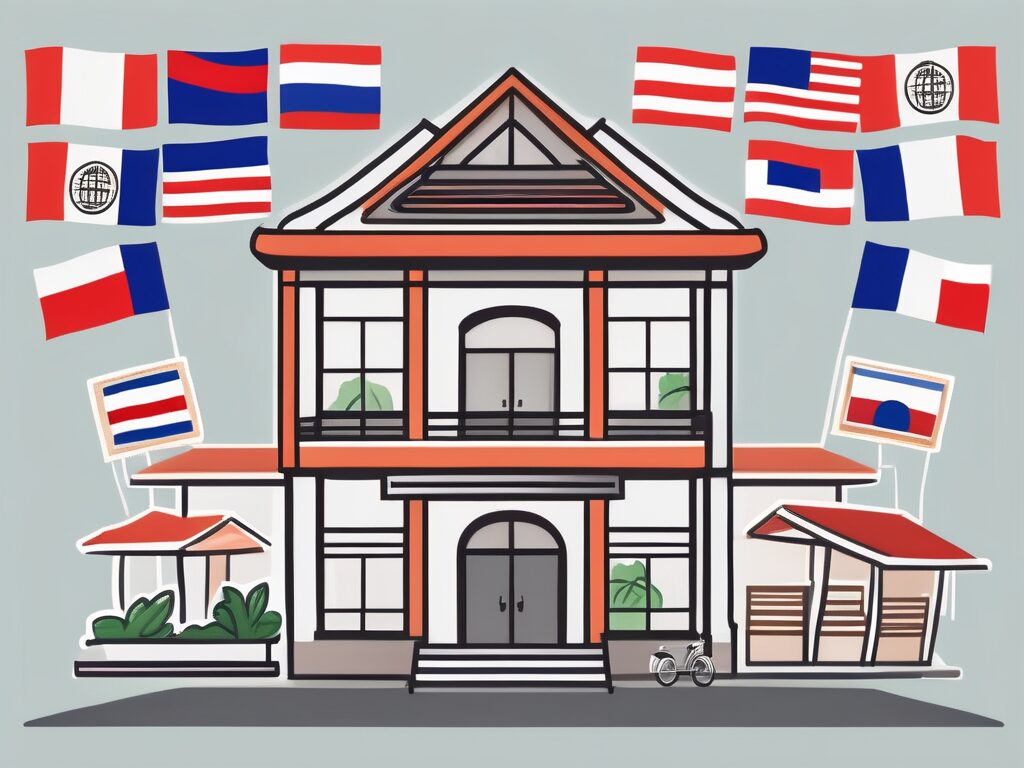Thailand, known as the ‘Land of Smiles’, is a popular destination for international teachers. Its rich culture, beautiful landscapes, and friendly locals make it an attractive place to live and work. However, like any country, it presents its own unique challenges. This comprehensive guide will delve into the biggest hurdles that international teachers may face when embarking on their teaching journey in Thailand.
Language Barrier
The Thai language is vastly different from English and other Western languages. It is tonal, meaning that the meaning of a word can change depending on the tone in which it is spoken. This can make communication quite challenging for international teachers.
While many Thais in tourist areas and larger cities speak English, this is not always the case in more rural areas or within the school system. This can make everyday tasks like shopping, using public transport, or communicating with colleagues and students more difficult.
However, don’t let this deter you. Many international teachers choose to take Thai language classes to help them navigate their new surroundings. Plus, you’ll find that many Thais appreciate any effort to speak their language, even if it’s just a few basic phrases.
Cultural Differences
Thailand has a rich and deep cultural heritage that can be quite different from what international teachers are used to. Understanding and respecting these cultural norms is crucial to integrating into Thai society and being successful in the classroom.
For example, showing respect to elders and those in positions of authority is a fundamental aspect of Thai culture. This extends to the classroom, where students are expected to wai (a traditional Thai greeting) their teachers. As an international teacher, it’s important to understand and respect these customs.
Thailand is also a predominantly Buddhist country, and many of its customs and holidays revolve around this religion. Understanding these practices can help international teachers connect with their students and colleagues on a deeper level.
Teaching Styles and Expectations
The Thai education system and teaching styles can be quite different from those in Western countries. This can be a significant hurdle for international teachers.
For instance, rote learning is common in Thai schools. This involves memorising information and repeating it back verbatim. While this may seem outdated to some international teachers, it’s important to understand that this is a deeply ingrained part of the Thai education system.
Additionally, Thai students are often shy and reserved in the classroom, particularly when it comes to speaking English. This can be challenging for international teachers who are used to more interactive and participatory teaching styles.
Visa and Work Permit Issues
Obtaining a visa and work permit can be a complicated and time-consuming process. This is one of the biggest hurdles for international teachers in Thailand.
Teachers usually need a Non-Immigrant B visa to work in Thailand. This requires a lot of paperwork, including a job offer from a Thai school, a degree certificate, and a criminal background check. Once in Thailand, teachers must then apply for a work permit.
It’s important to note that visa and work permit regulations can change frequently. Therefore, it’s crucial to stay up-to-date with the latest information and seek advice from reliable sources.
Adjusting to a New Lifestyle
Moving to a new country always involves a period of adjustment. Thailand’s tropical climate, different food, and slower pace of life can all be a shock to the system.
It’s also worth noting that the cost of living in Thailand can be significantly lower than in Western countries. While this can be a positive aspect, it can also mean lower salaries for international teachers.
However, with an open mind and a sense of adventure, many international teachers find that the benefits of living and working in Thailand far outweigh the challenges. The opportunity to immerse oneself in a new culture, make a difference in the lives of students, and enjoy a unique lifestyle is truly priceless.
Empower Your Teaching Career in Thailand with IPGCE
Confronted with the challenges of stringent qualifications, limited career progression, professional isolation, and the need for a deeper understanding of global education systems, IPGCE is your gateway to overcoming these hurdles. Our International Postgraduate Certificate in Education is designed to enhance your credentials, leading to a significant increase in interview callbacks and promotion rates. Connect with a global network of educators, gain comprehensive insights into international curricula, and enjoy the flexibility of online study that fits your busy schedule. Don’t let inadequate qualifications hold you back. Join the UK’s #1 Teacher Training Course today and take the first step towards a rewarding teaching journey in Thailand.

